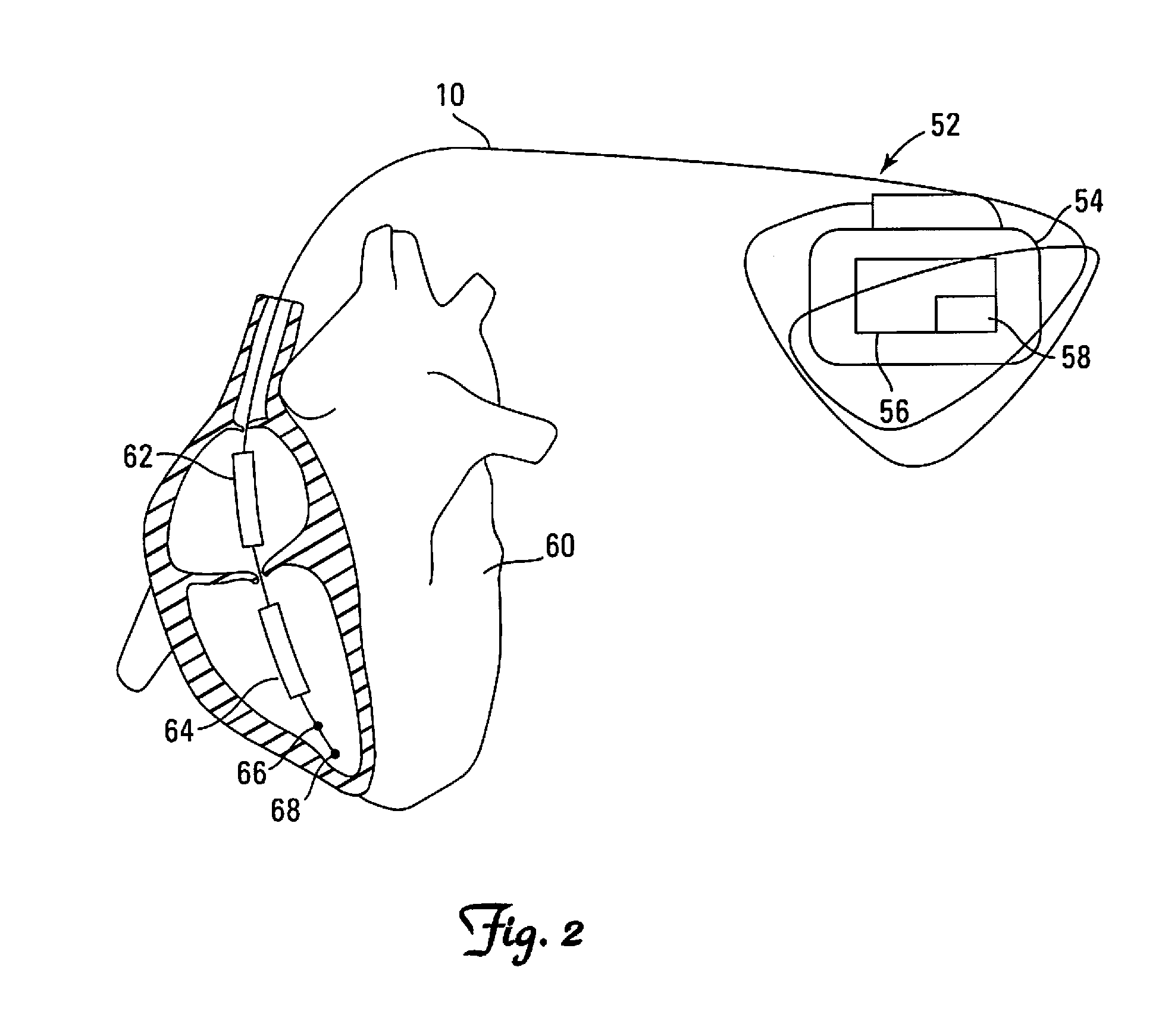Detection of Implantable Lead Failures by Differential EGM Analysis
- Summary
- Abstract
- Description
- Claims
- Application Information
AI Technical Summary
Benefits of technology
Problems solved by technology
Method used
Image
Examples
second embodiment
[0066]Optionally, an electrode may be removed from the defibrillation pathway only if the diagnosis may be confirmed by one of several methods. One such method—discussed in “Background” and elucidated in the second embodiment below—includes measurement of impedance using a “sliver” pulse as described in U.S. patent application Ser. No. 13 / 843,145 of Swerdlow and Kroll, filed Mar. 15, 2013, the disclosure of which is incorporated by reference in its entirety.
[0067]FIG. 7 is a flowchart depicting a second embodiment applicable to both single-coil and dual-coil leads. Steps 701-703 are identical to those of the first embodiment. In optional 704, shock impedance is measured to detect insulation breaches for each possible two-electrode shock pathway, using one of several advanced methods beyond the presently used low-voltage (painless) measuring technique to estimate shock impedance. One such method is the high-voltage, short-duration “sliver” pulse described in U.S. patent application S...
first embodiment
[0069]Step 707 corresponds to 610 of the The ICD initiates both a patient alert (e.g. vibratory or audible) and a remote-monitoring alert (providing that the remote internet-based monitoring is enabled) using methods known in the art.
PUM
 Login to View More
Login to View More Abstract
Description
Claims
Application Information
 Login to View More
Login to View More - R&D
- Intellectual Property
- Life Sciences
- Materials
- Tech Scout
- Unparalleled Data Quality
- Higher Quality Content
- 60% Fewer Hallucinations
Browse by: Latest US Patents, China's latest patents, Technical Efficacy Thesaurus, Application Domain, Technology Topic, Popular Technical Reports.
© 2025 PatSnap. All rights reserved.Legal|Privacy policy|Modern Slavery Act Transparency Statement|Sitemap|About US| Contact US: help@patsnap.com



